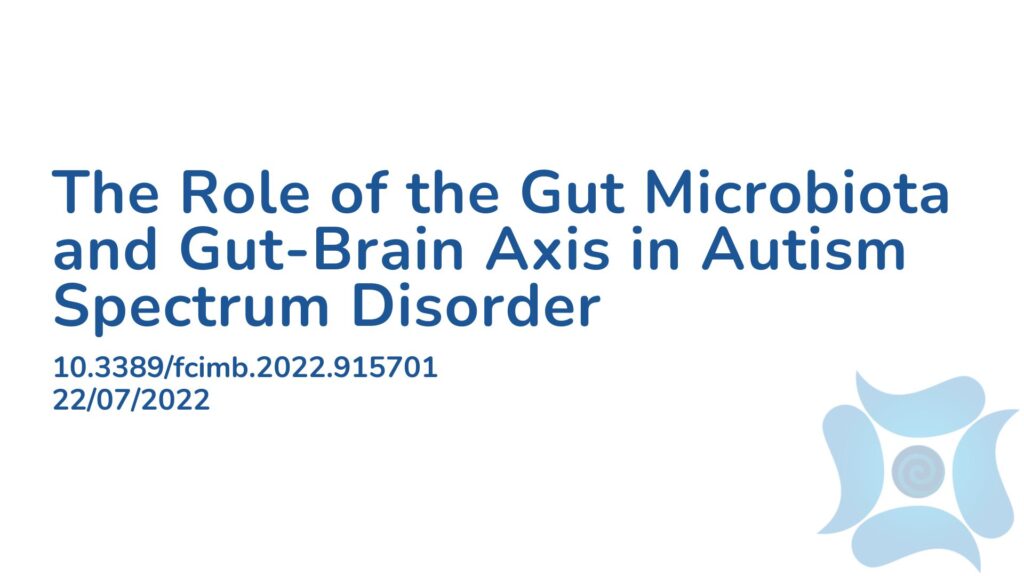Summary:
More individuals are diagnosed each year with Autism Spectrum Disorder (ASD). Statistics show that ASD affects 1 in 68 people globally and is characterized by impaired communication, emotional regulation difficulties, and repetitive or restrictive behaviors. Treatment approaches often involve behavioral therapies and medications like Aripiprazole, Escitalopram, antidepressants, and drugs that alter serotonin levels in the brain. Selective serotonin reuptake inhibitors (SSRIs) may improve communication, social skills, and adaptability in patients; however, studies have linked these medications to hyperactivity, aggression, and side effects such as vomiting, irritability, increased appetite, weight gain, and sedation. Researchers are constantly investigating the mechanisms underlying ASD to explore alternative treatments. Evidence suggests that both genetic factors, such as chromosomal abnormalities, and environmental factors, including diet and stress, contribute to the development and progression of ASD. Parents have reported that children with ASD often experience gastrointestinal (GI) issues like constipation, abdominal pain, diarrhea, and vomiting, leading researchers to explore the role of the gut-brain axis in ASD. The gut-brain axis is a biochemical signaling pathway between the GI tract and the central nervous system. Growing evidence also suggests that gut microbial imbalances play a role in the development of various diseases, including inflammatory bowel disease (IBD), celiac disease, allergies, asthma, metabolic syndrome, cardiovascular disease, obesity, and ASD. This review examined the relationship between ASD and the gut microbiome, including the impact of antibiotic overuse on gut health, potential underlying causes, and possible microbial therapies for treating individuals with ASD.The authors concluded that there is a growing body of evidence highlighting the link between the gut-brain axis and ASD. Several contributing factors to ASD were identified, including early microbiota development, the impact of microbiota imbalances during gestation, delivery methods, excessive antibiotic use, and stress. Pathogenic bacteria, such as Clostridium, have been found in the colons of children with ASD, suggesting a possible connection to the disorder. Short-chain fatty acids produced by microbial fermentation of dietary fiber also appear to play a role in ASD. While butyrate supports brain function, propionate can negatively impact brain function, potentially leading to behavioral changes and increased aggression in individuals with ASD.
Abstract:
Autism spectrum disorder (ASD) is a neurological disorder that affects normal brain development. The recent finding of the microbiota–gut–brain axis indicates the bidirectional connection between our gut and brain, demonstrating that gut microbiota can influence many neurological disorders such as autism. Most autistic patients suffer from gastrointestinal (GI) symptoms. Many studies have shown that early colonization, mode of delivery, and antibiotic usage significantly affect the gut microbiome and the onset of autism. Microbial fermentation of plant-based fiber can produce different types of short-chain fatty acid (SCFA) that may have a beneficial or detrimental effect on the gut and neurological development of autistic patients. Several comprehensive studies of the gut microbiome and microbiota–gut–brain axis help to understand the mechanism that leads to the onset of neurological disorders and find possible treatments for autism. This review integrates the findings of recent years on the gut microbiota and ASD association, mainly focusing on the characterization of specific microbiota that leads to ASD and addressing potential therapeutic interventions to restore a healthy balance of gut microbiome composition that can treat autism-associated symptoms.
Article Publication Date: 22/07/2022
DOI: 10.3389/fcimb.2022.915701



